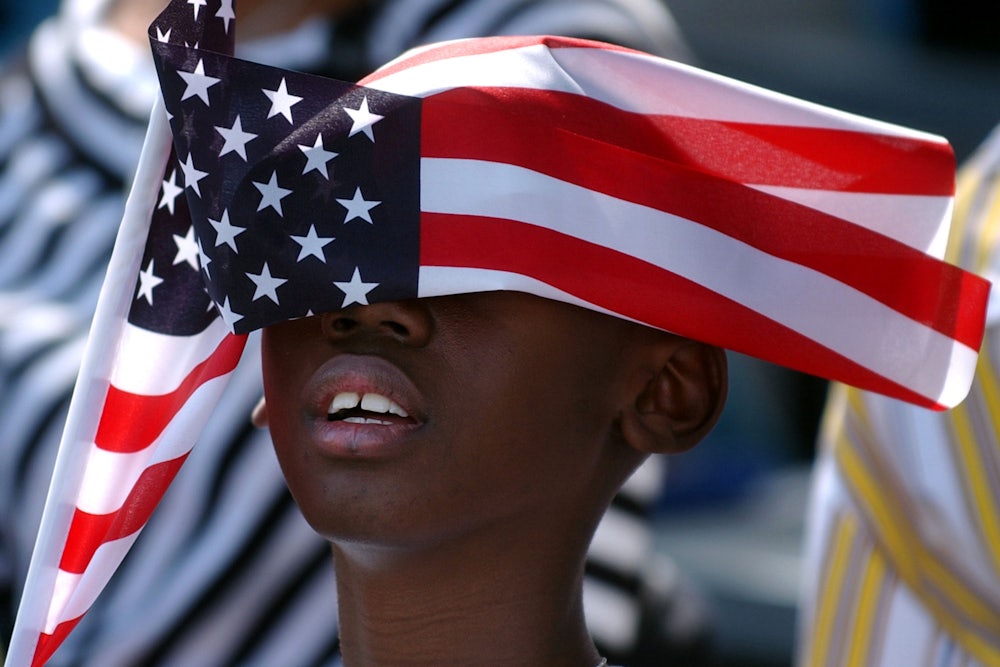The Equality of Opportunity Project has published a sweeping report investigating the stubborn income gap between black and white adult men. Tracking 20 million people born between 1978 and 1983, researchers found that, for white boys, wealthy parents predict a wealthy adulthood, but the same is not true for black boys. They are much more likely to fall into poverty in adulthood. As The New York Times writes, “Black men raised in the top 1 percent—by millionaires—were as likely to be incarcerated as white men raised in households earning about $36,000.”
Armed with reams of data, the study appears to underscore what more anecdotal evidence would suggest: that race—not class, not family structure, not education—is holding back African-American men, who are uniquely subjected to stereotypes of violence. Notably, the study found that black and white girls from similarly wealthy backgrounds earned similar incomes as adults.
In this instance, systemic racism works in a gendered way. Black boys are more likely to be disciplined in school and are more likely to be incarcerated as they age. Mass incarceration is a racialized problem, disproportionally locking up black men, pulling them from their neighborhoods through racist policing and sentencing, and ultimately disrupting the building of wealth.
The study found that results only narrowed in places with fewer displays of racial bias.
The few neighborhoods that met this standard were in areas that showed less discrimination in surveys and tests of racial bias. They mostly had low poverty rates. And, intriguingly, these pockets—including parts of the Maryland suburbs of Washington, and corners of Queens and the Bronx—were the places where many lower-income black children had fathers at home. Poor black boys did well in such places, whether their own fathers were present or not.
These findings suggest that the burden of equality does not lie on the black family, as some have suggested, but on the forces that shape neighborhoods. Boys, generally, and low-income and nonwhite kids, particularly, benefit from a mentor who is the same gender and race who understands the child’s situation and social position.
The study concludes that reducing racial bias is a must if we want to make sure black youth can escape the poverty trap. It requires an active approach lacking in current policy.
